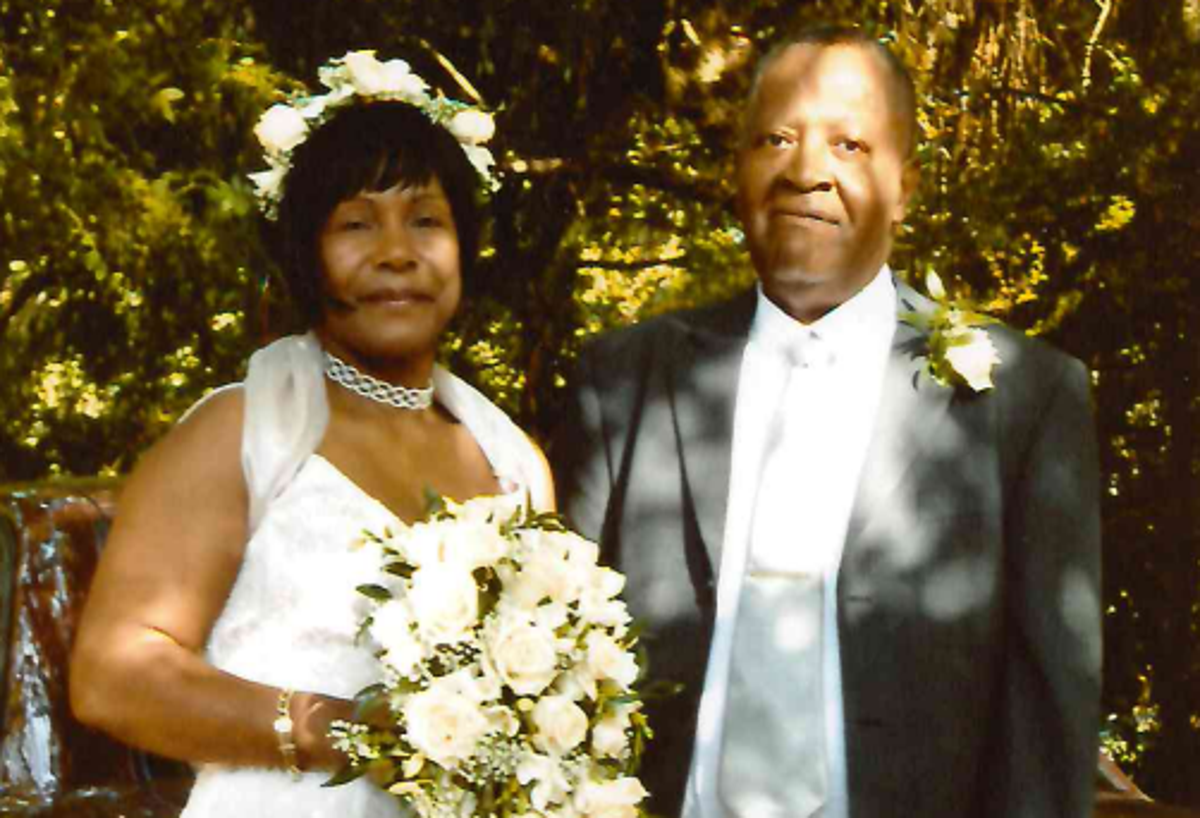Get the free Morning Headlines email for news from our reporters across the world
Sign up to our free Morning Headlines email
A Windrush widow who was wrongly told she would be deported after her husband’s death can remain in Britain after a years-long battle with the Home Office.
Maxine Scayle, 70, was born in Jamaica but moved to the UK in 1965, aged 14, and went on to marry her British husband Melvin Harriott in February 2010. He had arrived in the UK in the 1950s as part of the Windrush generation of Caribbean immigrants who moved to Britain between 1948 and 1973.
Following his sudden death in December 2020 with Covid-19 symptoms, Ms Scayle was facing imminent deportation. However, legal intervention from MTC Solicitors resulted in the government’s decision to let her stay in the country.
Ms Scayle now has limited leave to remain in Britain on a 10-year route, and after a decade she can apply for indefinite leave to remain and citizenship.
“When I got the news, I started crying. Eye water came out of my eye, and I said ‘Thank you Jesus!’,” Ms Scayle told The Independent.
Recommended
- Patel: Reports of criminal who murdered after avoiding deportation ‘appalling’
- Police reveal reason behind Leicestershire ‘sonic boom’
- Mystery loud bang baffles Leicester and beyond
“I’m very happy and grateful to my solicitor – but the fight isn’t over. I’m wondering where I’m going to get money to keep on renewing my visa every two years for the next 10 years. I’m not working at the moment and I’m concerned about how my immigration status will affect jobs when it’s time to renew my visa each time. Will I lose jobs while a decision is pending with the Home Office?”
Maxine Scayle married her late husband Melvin Harriott in February 2010
(Family handout)
Her fight to stay in the UK began in the early 2000s when her indefinite leave to remain application was turned down by the Home Office. She was not recognised as a Windrush migrant and her application was rejected because she had not had “continuous residence” as a child, the Home Office said.
Ms Scayle returned to Jamaica in the 1970s, and came back to the UK in 1995 for her father John’s funeral, and again finally in 1998, when she settled here.
A former British Rail worker, her husband had arrived in the UK in the 1950s as part of the Windrush generation, but this family connection was not taken into consideration by the government when she applied for a dependant visa.
Then, when the couple got married in 2010, Mr Harriott was a pensioner and Ms Scayle was his dependant. The Home Office argued that the couple had failed to meet UK immigration rules requirements for a spouse visa because Mr Harriott’s pension didn’t meet the £18,600 financial income threshold to sponsor his wife.
Recommended
The minimum income requirement was introduced by the UK government in 2012 “to prevent a burden being placed on the taxpayer”.
With her status unsecured, Ms Scayle has been unable to work or claim benefits, instead relying on the generosity of friends and distant relatives to get by.
Maxine Scayle reacting to news of her Home Office victory in February 2023
(Supplied)
“As someone who’s a descendant of the Windrush generation, who has been to the UK before, it is not right that I had to go through this experience in the first place,” Ms Scayle told The Independent.
“The government should do better with the Windrush people and their children; how they treat us is disgusting. People like my parents came here to clean up England and made this country what it is.”
Since the Windrush scandal came to light in 2018, it has emerged that thousands of people who had moved to the UK were wrongly stripped of their rights and branded illegal immigrants by the government.
Naga Kandiah described Ms Scayle’s treatment by the Home Office as ‘hostile’
(Supplied)
Solicitor Naga Kandiah, who represented Ms Scayle, told The Independent that his client had fallen victim to the UK’s hostile approach towards the Windrush generation.
“Maxine has been living in limbo for over 25 years, effectively as a ‘ghost’, without access to any formal services,” Mr Kandiah said.
“For over two decades, she lived in the shadows, fearful of her fate, deprived of opportunity and excluded from society. All because of a lethal combination of draconian minimum income rules and previous poor legal representation.
“Finally she has gained her status through an alternative route, but at such a loss of dignity, at the age of 71 years, now having lost key decades of her life which should have been for enjoyment.
“This case highlights how Home Office rules effectively force people to hide and exist as ‘invisible persons’, creating immense vacuums of dignity and access to services.”
The Home Office has been approached for comment.
✕
Subscribe to Independent Premium to bookmark this article
Want to bookmark your favourite articles and stories to read or reference later? Start your Independent Premium subscription today.
SubscribeAlready subscribed? Log in{{/url}}

